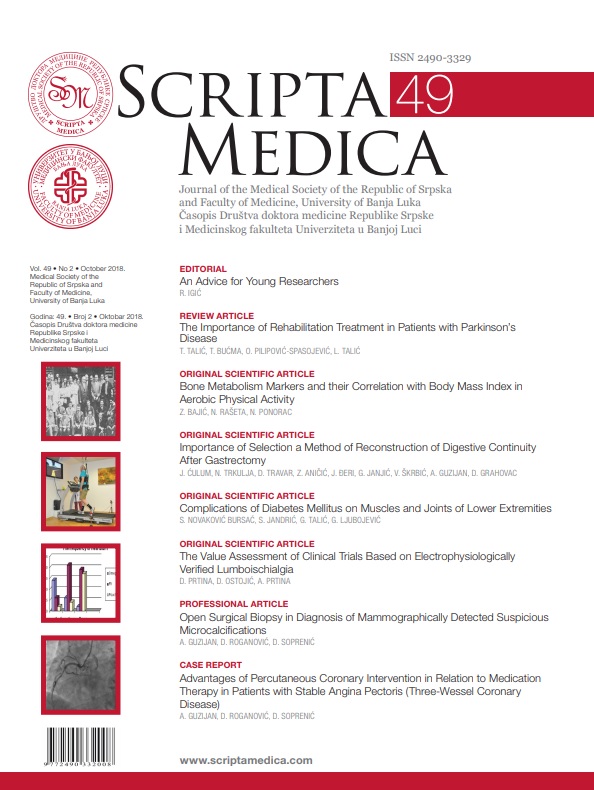Importance of Selection a Method of Reconstruction of Digestive Continuity After Gastrectomy
DOI:
https://doi.org/10.7251/SCMED1802099CAbstract
Introduction: Gastrectomy is one of the most common surgical methods for the treatment of gastric cancer, which basically destroys the mechanism and digestion chemistry. Reconstruction after gastrectomy attempts to optimize the antireflux and nutritive component of the postgastrectomic syndrome.
Objective: To determine which reconstructive method after gastrectomy has the optimal synthesis of antireflux and nutritional components.
Patients and Methods: 111 patients were treated for gastric malignancies at the Surgical Clinic of the University Clinical Center in Banja Luka, which were operated with the intention of achieving curability.
Results: Based on Fisher’s exact probability test there is no statistically significant difference (p> 0.05) in mortality compared to the restoration of digestive continuity after gastrectomy. Reflux oesophagitis is the dominant modality of morbidity in omega-loop reconstruction (p <0.05). There is no statistically significant difference (p> 0.05) in late dumping syndrome in patients relative to individual gastric substitution options. In the Hunt-Lawrence-Rodino pouch reconstruction option, there is no statistically significant difference (p> 0.05) in the participation of individual modalities of meal quantity in relation to the condition before the disease or the modality of the nutritional status. .
Conclusion: The results indicate the antireflux component of reconstruction Roux en Y and the advantage of the nutritive component in the loop modification (the creation of the Hunt-Lawrence-Rodino pouch).

